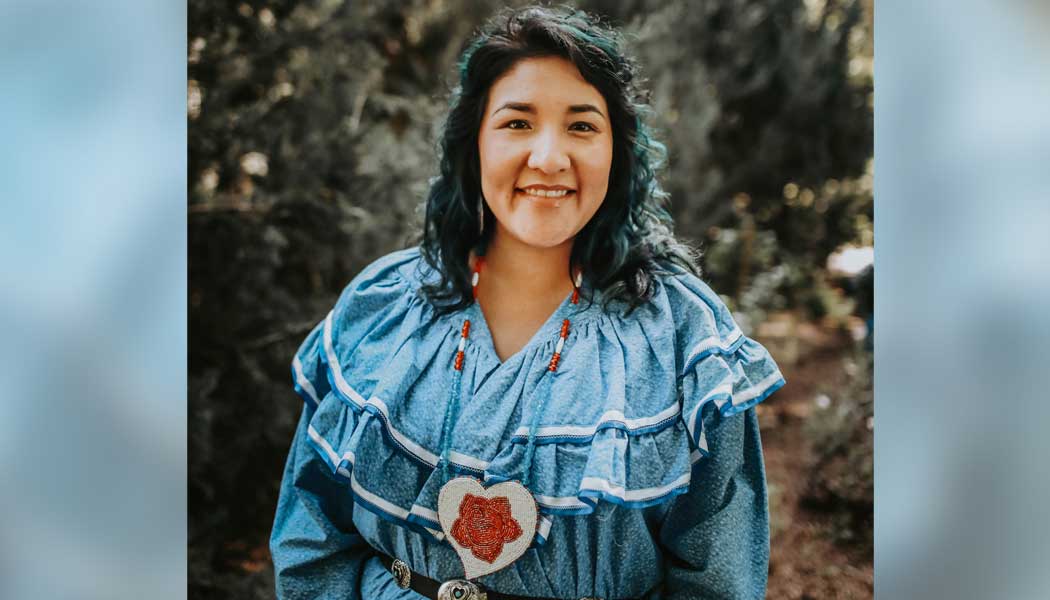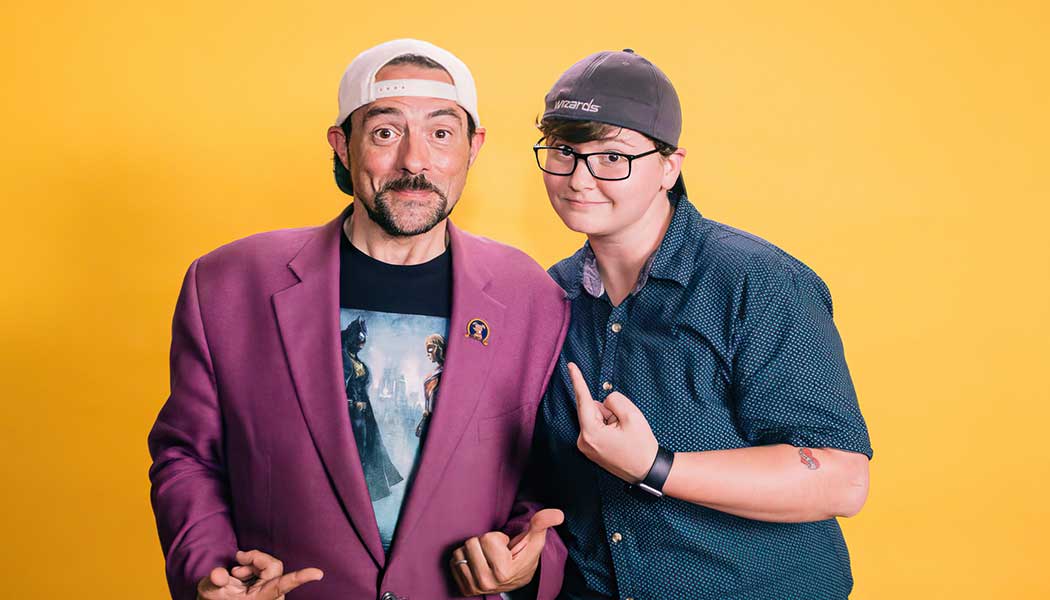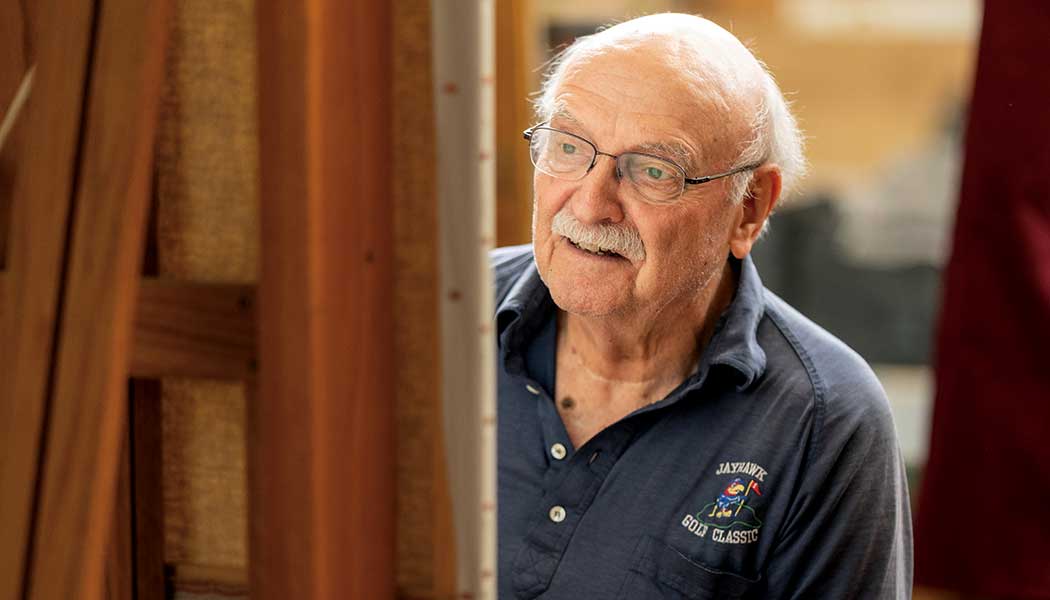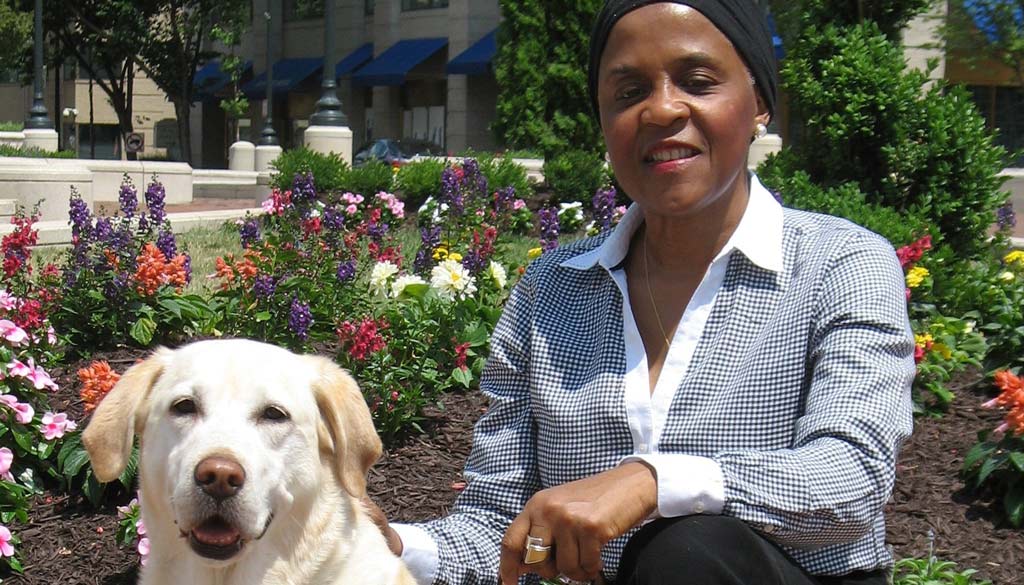Murdaugh murders: Journalist Mandy Matney unravels mysteries
Issue 1, 2024
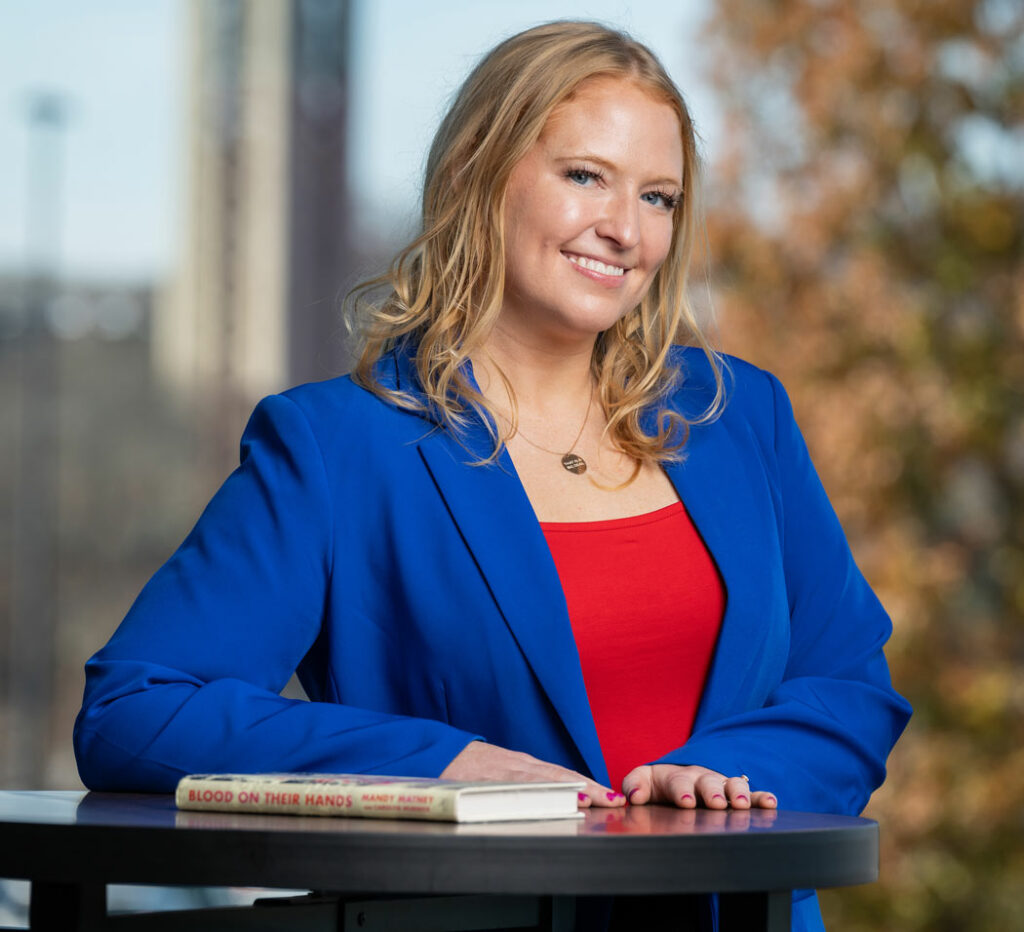
Around 2:20 a.m. on Feb. 24, 2019, a boat crashed into the Archers Creek Bridge in Beaufort County, South Carolina, causing the death of one of the six passengers, 19-year-old Mallory Beach. In the five years since the accident, the details surrounding it and the jaw-dropping chain of events that followed have been covered by every major U.S. news outlet, recounted for prime-time audiences in episodes of “20/20” and “Dateline,” and dissected in docuseries from Netflix, HBO and other merchants of mass entertainment.
But back in 2019, before goings-on in the South Carolina Lowcountry were a topic of widespread fascination, before the last name Murdaugh was among the most notorious in true crime, Mandy Matney was a local journalist with an inkling there was more to the story. Matney, j’12, was working at The Island Packet, a newspaper in Hilton Head Island, also in Beaufort County. She and her colleagues set about reporting on the fatal crash and learned that Paul Murdaugh, the 19-year-old son of well-connected attorney Alex Murdaugh, had been at the helm of the boat that morning. Three generations of Murdaugh men—Alex’s great-grandfather, grandfather and father—had consecutively held the top prosecutor role in the region for 86 years, from 1920 to 2006.
“The stories we wrote that first week after the crash got hundreds of comments on social media, with people saying things like, ‘The Murdaugh family gets away with everything,’” Matney remembers. “I had this feeling that if even half of it was true, it was a huge story, and this was a chance to do something big that mattered.”
Matney began researching the Murdaughs and steadily unearthed a tangle of suspicious deaths and dubious financial dealings linked to the family. When Paul Murdaugh and his mother, Maggie—Alex’s wife—were found murdered on June 7, 2021, the shocking turn jolted the story into the national spotlight, and Matney’s years of dogged investigative work provided critical context for a country suddenly riveted by the plight of the prominent family. Amid the booming interest, Matney decided the time was right to venture into a new medium, one she thought would allow for a clearer presentation of the full, complicated Murdaugh picture. From her kitchen table, she launched the “Murdaugh Murders Podcast” two weeks after Paul and Maggie’s deaths.
“I started the podcast primarily because I wanted people to understand the story,” Matney says. “A lot of the national media were pointing at the boat crash victims as being suspects in Paul and Maggie’s murders. They weren’t understanding all the different layers of how corrupt this area is and the different power dynamics involved.”
Matney’s pivot to podcasting proved life-changing: The “Murdaugh Murders Podcast” hit No. 1 on Apple Podcasts in September 2021, and Matney has narrated for an audience of millions the dramatic, winding Murdaugh tale, continuing into the aftermath of Alex’s March 2023 conviction for Paul and Maggie’s murders.
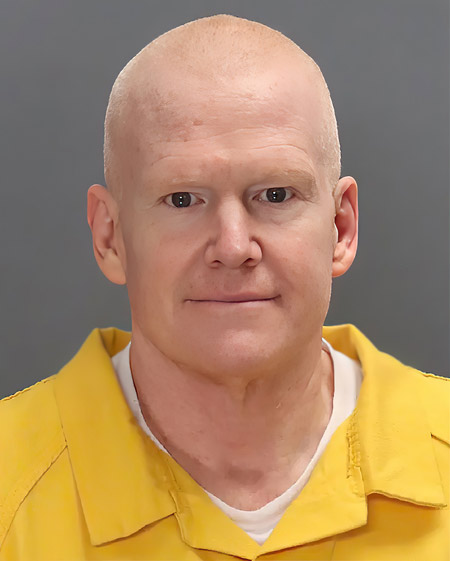
Throughout Matney’s unexpected journey—which has included releasing more than 120 podcast episodes; founding an independent news organization, Luna Shark Media; and writing a book, Blood on Their Hands: Murder, Corruption, and the Fall of the Murdaugh Dynasty, published in November by William Morrow—she has remained guided by her resolve to uncover the truth. “What has always stuck with me from journalism school is the saying, ‘Journalists run to the fire,’” Matney says. “Everybody else runs away from the fire, but as a journalist, if you see smoke, you run to it. With the Murdaugh story, I learned that when things are scary, you don’t run away; you don’t ignore it. You go see what’s going on and you figure it out.”
Matney grew up in Shawnee, and early on showed an inclination toward her future profession. She pored over her parents’ copies of The Kansas City Star and excelled in English classes. “I remember in third grade, the first time I ever felt like a teacher thought I was good at something was when we were constructing complex sentences,” Matney recalls. “She used mine as an example for the class, and I remember her saying, ‘You’re really good at this.’ The more I had to do any type of writing, the more I realized that I had a talent at it.”
When Matney was just 7, her family endured the devastating loss of her brother, Michael, her only sibling, who died at age 9 of complications from the flu. “It changed my whole life in a lot of ways, but it made me want to help other people who were in similar situations of losing a loved one however I could,” Matney says. Out of her grief grew a deep empathy, a trait that touches several aspects of her work today, such as interviewing family members of crime victims. “Making people feel like they aren’t alone, that they can get through it, that they have someone there—all those things really matter to me,” she says.
Matney honed her writing skills as a reporter and columnist for her high school newspaper, and by the time she arrived at KU in fall 2008, her heart was set on becoming a journalist. As a sophomore, she began writing opinion pieces for The University Daily Kansan. Her column, “Text and the City,” explored the changing norms of dating, relationships and communication amid increasing social media use and evolving digital culture. “I thought having my column in the UDK was the coolest thing,” Matney says. “It was really great for me to gain confidence in my writing—just having that practice of getting your words and your name out there and getting used to people seeing your work.” The newspaper became a cornerstone of her education, and she held various roles on its staff throughout the rest of her time at KU.
Matney also found new, transformative perspective in studying sociology. She took her first course as a freshman and decided to minor in the subject. “Sociology gave me an understanding of why I was so self-conscious about so many things,” Matney says. “I realized how I was so programmed by mainstream media to focus on my looks and to think that my worth was 100% what I looked like. I remember having so many moments of enlightenment and clarity. It was awesome to have those tools, to be able to take a step back. It makes you see the world differently, and it helped me develop into who I am as a journalist.”
As graduation approached in May 2012, Matney admits she was nervous and uncertain about her next steps. “Everyone was telling me at the time, ‘There’s no future in journalism,’” Matney says. “But I just couldn’t leave it. Journalism was one thing I was good at.” Determined, she landed her first job at the Waynesville Daily Guide in Waynesville, Missouri, and in 2014 joined the Danville Commercial-News in Danville, Illinois. At both papers, budget constraints meant she often shouldered an outsized workload for meager pay, and as burnout crept in, so too did persistent doubts about her career choice. “I constantly had to figure out if continuing to pursue it was worth it,” she says. “And the stories I got to tell and people I got to meet are what made it worth it.”
One of those people was Dick Van Dyke, whom Matney interviewed in 2015 when the entertainment icon reached out to the Commercial-News on social media upon learning the city of Danville had condemned his childhood home. “He had the most amazing, vivid memories of growing up in Danville. He could remember the color of the wallpaper,” Matney says. “We put him in contact with the owners of the home, and he was eventually able to buy it. He really cared about his hometown, and he gave a local reporter his time. It was one of those things that makes you excited to get up and do your job.”

During one of her commutes to the newsroom in Danville, Matney began listening to “Serial,” the 2014 podcast that examined in depth the 1999 murder of 18-year-old Hae Min Lee in Baltimore and the subsequent trial and conviction of Lee’s ex-boyfriend, Adnan Syed, for the crime. Hosted by journalist Sarah Koenig, “Serial” racked up an estimated 40 million downloads in 2014, and its success highlighted podcasts as a platform for compelling storytelling and propelled the medium into the mainstream. Matney was hooked. “It was so beyond surface level,” she says. “The host took you into the process and into how she was coming up with her conclusions instead of just, ‘This person’s guilty.’ I thought, ‘Wow, this is journalism and storytelling in a different form, and people are listening to it and paying attention, and it’s making change.’”
In 2016, weary of Illinois winters, Matney moved to Bluffton, South Carolina, and signed on at The Island Packet. She dove into learning all about her new community, where dangerous storms and rogue alligators regularly led the news, and she kept an eye out for a story that might present a change-making opportunity of her own.
As Matney continued investigating the Murdaughs following the boat crash that killed Mallory Beach, an image emerged of a family with a formidable presence in the Lowcountry, a legacy of unchecked legal influence, and ties to more than one mysterious death. Her findings lit a fire in her to do the tough work of piecing together the mountain of seemingly unrelated bits of information into a coherent record of the family’s affairs. She often spent her free time tracking down and interviewing sources and sifting through public records.
Though she wouldn’t know its significance until later, Matney made a breakthrough in June 2019, when she discovered a wrongful death settlement in a lawsuit brought against Alex Murdaugh by the family of 57-year-old Gloria Satterfield, the Murdaughs’ longtime housekeeper. Satterfield had died in February 2018 after a curious trip-and-fall accident at the Murdaugh home. Matney was the first journalist to report on the settlement, and her coverage became the initial tug on a lengthy thread that, in its unraveling, would reveal Alex Murdaugh’s heap of appalling financial crimes.
Eric Bland, an attorney who represents Gloria Satterfield’s sons, credits Matney with bringing Alex Murdaugh’s financial crimes to light. “In an age of clicks and sound bites, Mandy is the principled, hardworking journalist who does it the old-fashioned way,” Bland says. “At tremendous risk to her, she educated the public on the full Alex Murdaugh—the nuts and bolts of how he treated and financially manipulated clients.”
After Gloria Satterfield’s death, Alex suggested to her two sons that they sue him. Through an elaborate scheme, Alex then pocketed over $3.5 million in insurance settlement money. Bland says Satterfield’s sons never knew of any settlement money until they read Matney’s article. “That’s kind of what opened the floodgates for Alex’s clients to come forward and say there were questionable things that happened in their cases regarding finances,” Bland says. (In 2023, Alex pleaded guilty to 22 counts of financial fraud and money laundering.)
Through her sleuthing, Matney also discovered that Buster Murdaugh, the eldest of Alex and Maggie’s two sons, had been mentioned in tips to law enforcement regarding the death of 19-year-old Stephen Smith, whose body was found in July 2015 on a rural road not far from one of the Murdaugh properties. Smith’s death was initially ruled a hit-and-run accident. In reviewing recorded interviews and the South Carolina Highway Patrol’s case file, Matney learned of rumors that Smith and Buster had been romantically involved. (The investigation was reopened in 2021, and Smith’s death was ruled a homicide in 2023. Buster has denied any romantic relationship with Smith and any involvement in his death. No one has been charged with the crime.)
In January 2020, Matney took a job at an independent South Carolina news website, where she could devote more time to covering the Murdaughs. Throughout her odyssey, Matney and her boyfriend, David Moses, casually entertained the idea of creating a Murdaugh-focused podcast. The couple even recorded a mock episode about the boat crash to pass the time during COVID-19 lockdowns. With both working full time, however, the endeavor never progressed beyond aspirational. “We wanted to do a podcast, but it was never the right time,” Matney says. “Then when Paul and Maggie’s murders happened, David looked at me and said, ‘You need to do this now.’ I was terrified, but I wanted to do it.” Some humble preparation got the ball rolling. “David just Googled, ‘how to start a podcast,’ and that’s literally how we learned,” Matney says. “And our first episode came out two weeks after the murders.”

Episode No. 1 of the “Murdaugh Murders Podcast” discussed the double homicide of Paul and Maggie through the lens of Matney’s more than two years of research. She laid out for listeners the integral backstory regarding the family’s intimidating reputation, enmeshment with law enforcement, and connections to the deaths of Mallory Beach, Gloria Satterfield and Stephen Smith.
“I think it took 60 hours to put our first episode together, and it was only 12 minutes,” Matney says. “I was so bad at it. I couldn’t say full sentences. It doesn’t sound great at all, but I’m so proud of that episode because it’s now gotten millions of listens. And I think it shows people that you can start somewhere. You can improve.”
Throughout the summer of 2021, Matney, with Moses as producer, published seven installments of the “Murdaugh Murders Podcast.” More and more listeners tuned in with each episode. The leap from print to audio wasn’t entirely painless, though. “I immediately got criticism,” Matney says. “Not criticism about my journalism, but about how my voice sounded.” She pressed on, a sharp finish line in her mind: “I originally thought that we would do 10 episodes, tops.” But the Murdaugh saga, it would turn out, had even more bombshells in store: On Sept. 4, 2021, Alex Murdaugh claimed he sustained a gunshot wound to the head. “And then our numbers just skyrocketed,” Matney says. (Alex later admitted to orchestrating the shooting himself; it happened the day after the law firm he worked for confronted him about missing money.)
“All of a sudden, it seemed like the whole world was watching the Murdaugh case, and we were the go-to podcast for it,” Matney says. “Because I had been working on the case for so long and had a lot of sources on the ground who knew what was going on, the episode we put out after the shooting incident was questioning it—was saying, ‘This is why this is suspicious.’ It was way different from what the rest of the world was reporting. I was leading my audience in the correct direction, and because of that, I think people realized how good our sources were and that we were a voice they could trust in this, and they got really immersed in the story.”
Matney recalls mid-September 2021—when the “Murdaugh Murders Podcast” topped the Apple Podcasts chart, a feat especially impressive for an independent production—as a blur. She stayed in constant reporter mode, always ready to write about any new activity in the case, which trickled out around the clock. Deciphering all the developments—assessing them beyond face value—required diligence and additional time. “Every single thing that happened in this case, you had to look at the strategy behind it, where it came from, all the context around it,” Matney says. “And I think that was the hardest part. There was no rule book for a story like this that stretched on for so long with so much consistent news.”

On top of reporting at her day job and recording the podcast in her free time, Matney soon found herself inundated with requests to participate in TV shows and documentary projects about the Murdaugh case. What might seem a podcaster’s dream didn’t appeal to Matney, however. “Some people think I’m crazy for not wanting to be on Netflix,” she says. “It was a hard thing to say no to—they were offering more than my salary at the time. They really come at you with the idea that everyone wants to be on TV and everyone wants to be famous. But at the time, I was getting a ton of bullying and harassment online, so I already saw the downside of doing something like that. It ultimately wasn’t worth it.”
Advice from friend and fellow journalist Liz Farrell, whom Matney had worked with at The Island Packet, steadied her during the otherwise dizzying chapter: “Liz was like, ‘The podcast is your documentary. You should focus on that.’”
Matney heeded the guidance, and since August 2022 has worked full time on the podcast alongside Moses, now her husband. They formed Luna Shark Media—the name is a nod to their dog Luna—and brought on Farrell as a writer and co-host. With each episode, the podcast methodically unpacked the multiple Murdaugh-related mysteries, put a spotlight on Alex’s financial misdeeds, and gave listeners nuanced insight into the case’s many unfolding storylines. On July 14, 2022, Alex Murdaugh was charged with Paul and Maggie’s slayings, and on March 2, 2023, after a six-week trial, a jury found him guilty of their murders.
“I was speechless and shaken, but full of positivity,” Matney says of her reaction to Alex’s conviction. The outcome also kindled a sense of validation for her yearslong quest for answers and accountability. “I just couldn’t believe all the blood, sweat and tears that had gone into exposing this man, and for a jury to find him guilty—I felt elated,” she says. In another uplifting turn, musician Sheryl Crow, a fan of the podcast, mentioned Matney on social media during the trial. “Your podcast has been an incredible example of amazing reporting & shining a light on the injustices in the legal system for those (who) have money & power,” Crow tweeted on Feb. 23, 2023. “It reminded me how big the moment was,” Matney says of the shoutout, “and that the whole world was watching this case.”
At the heart of the Murdaugh story, beneath its spectacle of bizarre twists and turns, lies a familiar scenario, Matney says, to which she attributes the enormous interest the case garnered: “I think a lot of people in towns across America know families like the Murdaughs that have run things for years without people questioning them. I think we, early on, caught on to the corruption aspect of the story and the major problems with our justice system. We’ve been proud we’ve been able to highlight and educate people on so many different things within the justice system through this case. It’s important to show people this corruption does happen and is very real.”
Outside media have largely left the Lowcountry, but Matney still keeps tabs on the Murdaugh case, albeit with some adjustments. The “Murdaugh Murders Podcast” is now “True Sunlight,” and although the podcast still covers Murdaugh news—in late January, a judge denied Alex’s request for a new trial—Matney has branched out, digging into different cases and partnering with other journalists to investigate them. Ten people currently contribute to Luna Shark Media projects, and the organization offers a membership platform, Luna Shark Premium, with enhanced content, in-depth articles and educational materials. “We have a very clear mission to give a voice to the voiceless, to expose the truth wherever it leads, and to get the story straight,” Matney says of “True Sunlight.” “We don’t want to compete with the big media. We want to stick to our mission and what we’re good at, which is cases where crime meets corruption.” In selecting subject matter, Matney says she prioritizes lesser-known cases that have yet to be sufficiently scrutinized by an investigative journalist.
As Alex Murdaugh’s murder trial began, Luna Shark Media launched a second podcast, “Cup of Justice,” which features legal analysis and commentary from Matney, journalist Liz Farrell and attorney Eric Bland. “Cup of Justice” reached No. 1 on Apple Podcasts shortly after it debuted in January 2023. New episodes of “True Sunlight” and “Cup of Justice” come out every week. Together, the two podcasts average over 2 million listeners monthly.


In writing Blood on Their Hands, Matney says she wanted not only to take readers inside her work on the Murdaugh case, but also to share her personal story of carving her path in the industry, handling disappointment and setbacks, and finding the courage to hold the powerful to account. The result is a book she hopes can inspire readers, particularly women and young journalists who may feel downplayed or discouraged in their careers, as she once did.
Matney values the experience she gained at small-town publications, and she stresses that, in many high-profile true crime stories, the foundational fact-finding is done by boots-on-the-ground local journalists long before bigger media outlets swoop in. “The hard part was connecting the dots,” Matney says of covering the Murdaughs. “It was months of running into brick walls. We spent two years connecting all the dots before the murders even happened, and then we were able to lay it out for everyone and for the national press to pick up and run with. And I think we also made it easier for sources to speak out against the Murdaugh family. I think a story like Alex Murdaugh really shows how important local journalism is and how much good it can do.”
In Matney’s view, Alex Murdaugh may not have faced consequences for his host of other crimes without the efforts of local journalists that drew attention to the victims. “I don’t think authorities or the media would have cared nearly enough about the financial victims without knowing those very personal stories and just how horrible Alex Murdaugh was to these extremely vulnerable people,” Matney says. “Being able to tell those stories and show people the really personal side of financial crimes—I’m very proud of that.”
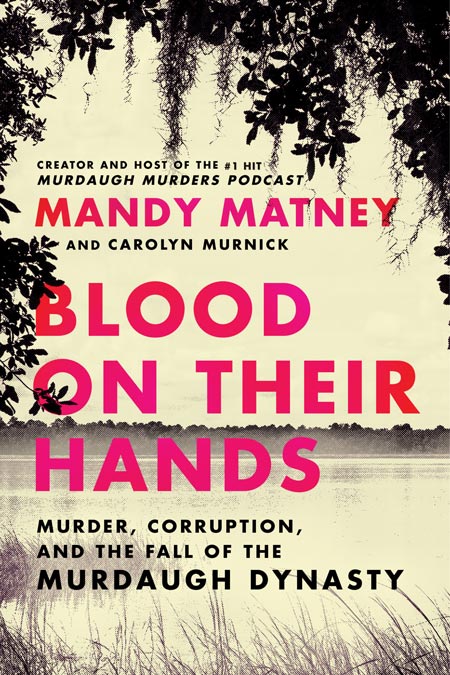
Matney is also proud of her Jayhawk roots and holds fast to the principles of good reporting instilled in her at KU. “The way we tell stories will change, but you still have to learn how to captivate an audience and get the information accurate, and those are skills that I absolutely took with me from KU and that provided a great foundation for my career,” she says. She looks back fondly, too, on the budding of lasting friendships and an environment that nurtured self-discovery. “I had the best memories at Anschutz with my girlfriends at like 3 in the morning,” she laughs. “I’m still a chronic procrastinator. I’ve learned to embrace it.” She is often up into the wee hours of the morning finishing podcast episodes, though she has traded her kitchen table setup for a professional recording booth in her home studio.
A particularly rewarding aspect of her work, Matney says, is the loyal, engaged audience she has cultivated. “It’s people collectively who believe in doing the right thing and who want to see justice for victims, and they’ve made ‘Murdaugh Murders Podcast’ and ‘True Sunlight’ more of a movement than a podcast,” Matney says. Several listeners have told her the podcast galvanized them to get involved in grassroots advocacy or local government. “It’s exciting to do work for an audience like that. They motivate me to do better,” Matney says. “I’ve always wanted my work as a journalist to create positive change, so that has been the best thing in the world.”
Megan Hirt, c’08, j’08, is assistant editor of Kansas Alumni magazine.
Top photo by Steve Puppe
Other photos courtesy of Luna Shark Media
/

